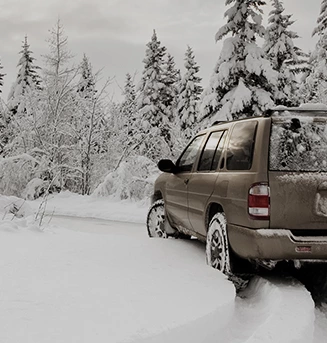Positive Crankcase Ventilation ? PCV Valve Service at Auto Pro Troy
October 31, 2021
Hello Troy! Did you know that the first federally-mandated emissions control device was introduced in the 1960's? The Positive Crankcase Ventilation valve, or PCV valve, has been installed in Michigan vehicles since 1964 and represents the first legislation by the United States government to regulate harmful emissions as well as to improve performance in the country's vehicles.
The PCV valve, as you can probably guess, is located on the crankcase. The crankcase is the lowest part of a vehicle's engine. It houses the crankshaft and the engine oil. The crankshaft connects to the pistons that power the engine.
Pistons are pushed down when fuel is burned in an engine. This causes the crankshaft to rotate, which sends power to the transmission. It ultimately turns the axles and causes the vehicle to move. Some of the gases released by the burning fuel squeeze around the pistons and down into the crankcase.
If the escaped gases mix with the engine oil in the crankcase, oil sludge develops. This sludge has the consistency of petroleum jelly and can cause damage by clogging up passageways in the engine. Further, escaped gases can build up pressure inside the crankcase that can blow out seals and gaskets.
Before 1964, a hose was attached to the crankcase that vented escaped gases out into the air. These gases contained about 70% unburned fuel as well as harmful emissions. The PCV valve was designed to curb these harmful emissions as well as recapture unburned fuel.
The PCV valve is a small, one-way valve that allows escaped gases to exit the crankcase. The gases are then routed into the intake system so they can be re-burned in the engine. Fresh air enters the crankcase through a breather tube to facilitate this circulation and keep the air in the crankcase clean.
The PCV valve, like most working parts on a vehicle, will wear out over time. Usually it simply gets gummed up. Preventive maintenance, including routine oil changes at Auto Pro Troy in Troy, will extend the life of the valve, but eventually it will have to be replaced. A sticking PCV valve won't allow gases to circulate properly, which can increase pressure in the crankcase. Over time, that pressure will lead to oil leaks.
Your vehicle manufacturer recommends that a PCV valve be replaced every 20,000 to 50,000 miles (32,000 to 80,000 kilometers), depending on the vehicle and Troy driving conditions. It's an inexpensive repair but may not be included in the maintenance schedule in your owner's manual. So if you're looking for auto advice about the PCV valve, you may have to ask our pros at Auto Pro Troy.
Taking care of our PCV valve protects the environment in Michigan and improves vehicle performance. It's just part of good vehicle care for Troy drivers and a way all of us can do our part to improve the world we live in.
Auto Pro Troy
512 East Maple Rd.
Troy, Michigan 48083
248-270-3002
Need Service?
More articles from Auto Pro Troy Auto Repair

Gearing Up (Differential Fluid Service)
January 25, 2026
You may have never thought about it, but when you turn a corner, the wheels on one side of your vehicle turn at a different speed than the other side. What is this magic? The answer is something called the differential. A differential is a gear box placed between the drive wheels and needs lub... More

Why Maintaining Your Windshield Wipers and Washers Matters (Windshield Wiper and Washer Inspection)
January 18, 2026
What do mud, bird droppings and frost all have in common? When theyre covering your windshield, they can temporarily obscure your view of the road, leaving you driving blind. And when you cant see the road clearly ahead of you, it can be really scary. Thats one of the reasons its important to m... More

U and your U-Joints (Lubricate U-Joints)
January 11, 2026
If your vehicles power goes to the rear wheels, then you have something called U-joints in the drivetrain. U-joints are connectors that allow the rotating power from your vehicles engine to deliver its power through a driveshaft to make the rear wheels rotate. You need U-joints because the surfa... More










